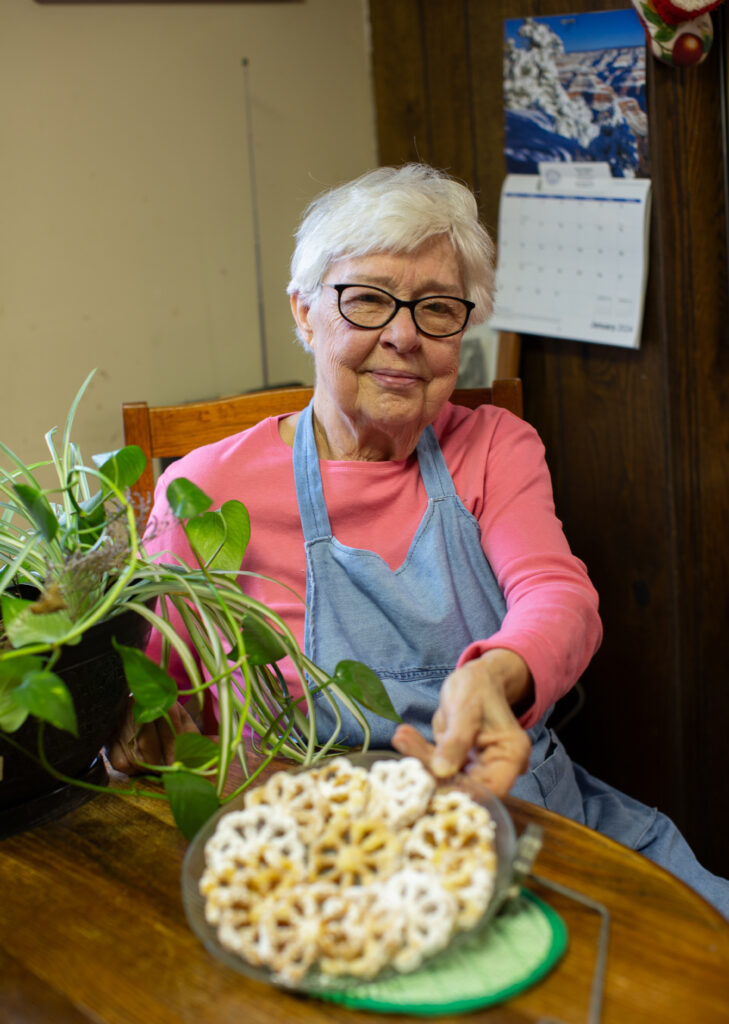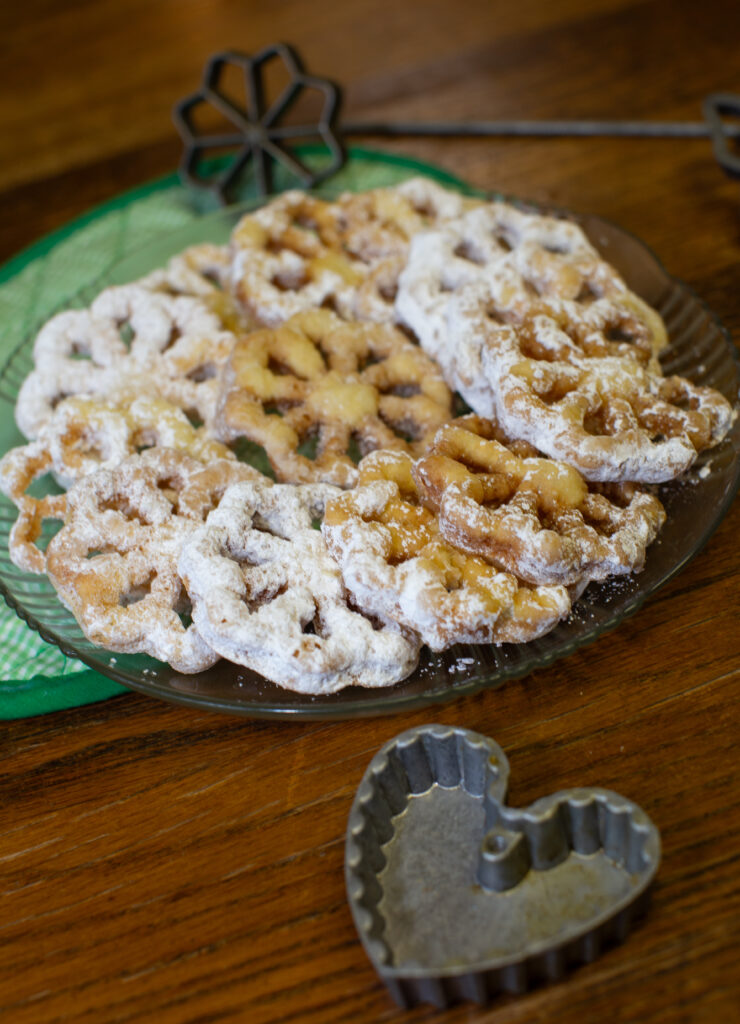By Jasmine Jones
This story was first published as “Community Cookbook: Rosettes, by Ethel Priest from St. Paul Lutheran Church in Jackson” in the February 2024 issue of The Best Years.
Cooking has and always will be a big part of Ethel Priest’s life. She says she makes most of her food from scratch, because she likes to “know what’s in it.”
Priest cooks chicken bones into broth for alphabet soup, pressure cooks apples into applesauce, and picks her own walnuts and pecans for desserts like “hands full” cookies, which include a “handful of this and a handful of that.”
She learned how to cook as a child growing up in a multigenerational household on a farm in New Wells, Mo., with her brother, sister, parents and German-speaking grandparents. Priest says whoever came into the house first in the evenings would be the one to start cooking — even if that person happened to be five years old.
“Sometimes us young kids, we made a good thing [for dinner], and sometimes the experiment went way wrong, but we ate it,” Priest says.
In first grade, Priest remembers their books were written in English on one side of the page and German on the other side. However, since World War II had recently ended, Priest says some of the parents protested against their children learning German.
“So, that was all thrown out. But at home, that’s what my grandparents spoke: German,” Priest says.
Priest learned to speak German by listening to her grandparents; she learned to cook and bake by watching her grandmother dump flour straight from the bag into the mixing bowl, judging if it was the right amount based on looks. No recipe needed. This is how Priest makes most of her food today — by feel.
One morning many years ago when Priest was dating John V. Priest, who is now her husband, she cooked up a batch of pancakes. John loved them and asked how she made them so good. Priest said it must have been the buttermilk from her family’s farm, where they churned their own butter.
“They say a way to a man’s heart is through his stomach, so I guess that’s true,” Priest says.
When John visited her family’s farm for the first time, Priest says she found him wandering around the house looking for the bathroom. She told him, “Well, it ain’t in the house!” Priest then showed John the way to their outhouse and told him to watch out for the rooster.
“My mom and I were both standing at the kitchen window and said, ‘I bet he ain’t never coming back.’ Had to go to the bathroom outside,” Priest recalls.
John did come back, and the couple eventually got married — twice. First, they got married in St. Louis in a Catholic church, because John was raised Catholic; two days later, they got married in a Lutheran church back home, because Priest grew up Lutheran.
After getting married, the couple moved to John’s grandfather’s cattle farm in Jackson. The farm had black angus cattle and one pig named Arnold. The couple has three daughters, and when two of their daughters were born 11 months apart, Priest started babysitting for other families she knew. She still babysits today.
Priest makes up a weekly menu for the children she watches, serving them alphabet soup and other fresh, homemade meals. She says being around children and playing with them for so long has kept her “silly.” Before the pandemic, Priest visited residents at local nursing homes, and one of the residents asked her, “Are you ever going to grow up?” Priest responded, “I hope not!”
Outside of babysitting, Priest is an involved member of her church, St. Paul Lutheran in Jackson. She cooked her famous turkey dinner with dressing, cranberry salad, green beans and bean salad for the church’s annual Senior Citizens Banquet for 27 years before “retiring” from preparing the meal this year.
Priest also spends a lot of time with family. All Priest’s daughters, her sister and her sister’s children live in houses next to Priest’s house on the same road. Priest says years ago when her parents wanted to move into town, they ended up building a house across the road from them — which her nephew lives in now. They all visit each other often.
“If we need to borrow something, we help ourselves if they’re not home. Leave a note,” Priest says.
This also makes it easy for family members to gather on holidays, such as Christmas Day when Priest makes rosettes — a simple funnel-cake-like delicacy.
She says it doesn’t take long for a plate of rosettes to get eaten. They’re light and airy, like “nothing.”
Priest says when you eat one, you have to taste it again right away.
Rosettes
Recipe by Ethel Priest
½ cup flour
1 teaspoon sugar
½ teaspoon salt
½ cup milk
1 egg
Powdered sugar (for topping)
Heat oil in a pot to 375 degrees Fahrenheit. Heat the rosette iron in the pot while mixing flour, sugar, salt, milk and egg into a smooth batter. Dip hot iron into batter and drop the rosette into oil. Fry each rosette until golden on both sides. Put rosettes in a sealed bag with powdered sugar, and shake to evenly coat the treats in sugar. Enjoy!



